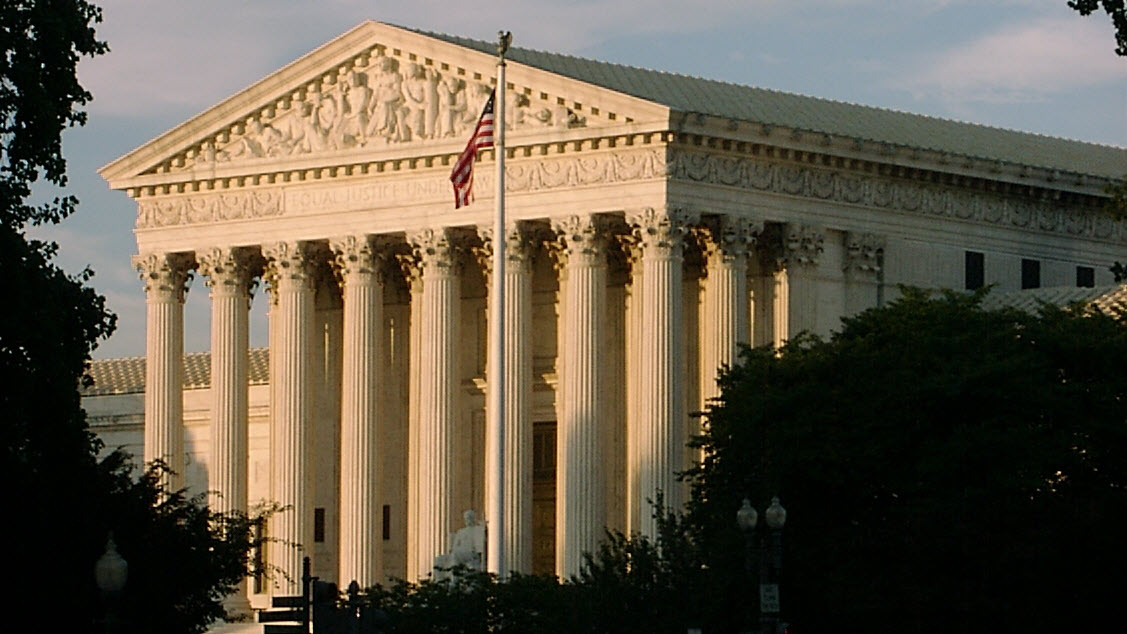Mozilla Drops Appeal of FCC Net Neutrality Decision

The smarter way to stay on top of the multichannel video marketplace. Sign up below.
You are now subscribed
Your newsletter sign-up was successful
Mozilla and others that had challenged the FCC's deregulation of internet access in the 2017 Restoring Internet Freedom order have decided not to take that challenge to the Supreme Court, which moves the issue to the states that implemented their own net neutrality regs in response to the FCC's deregulation.
Related: Net Neutrality Focus Shifts to States, Hill
The deadline was Monday (July 6) and Mozilla signaled there would be no challenge in the high court.
"After careful consideration, Mozilla—as well as its partners in this litigation—are not seeking Supreme Court review of the D.C. Circuit decision," the company blogged. "Even though we did not achieve all that we hoped for in the lower court, the court recognized the flaws of the FCC’s action and sent parts of it back to the agency for reconsideration. And the court cleared a path for net neutrality to move forward at the state level. We believe the fight is best pursued there, as well as on other fronts including Congress or a future FCC.
Back in October 2019, a three-judge panel of thethe U.S. Court of Appeals for the D.C. Circuit unanimously upheld the FCC's reclassification of internet access as a Title I information service and eliminating the rules against blocking, throttling and paid prioritization, though it required the FCC to better explain the impact of that decision on emergency communications, infrastructure buildouts and broadband subsidies.
Mozilla et al. sought full court review of the decision but that was denied, so the Supreme Court was the last stop in the appeal process. Among others petitioning the court for re-hearing were the National Hispanic Media Coalition (NHMC) and the Benton Institute for Broadband and Society.
Several states had implemented their own net neutrality rules in response to the FCC's elimination of its own, but challenges in California and Veromont were held in abeyance until the federal challenge was exhausted, as it has now been.
The smarter way to stay on top of the multichannel video marketplace. Sign up below.
"The fight for net neutrality will continue on," said Mozilla. "The D.C. Circuit decision positions the net neutrality movement to continue on many fronts, starting with a defense of California’s strong new law to protect consumers online—a law that was on hold pending resolution of this case. Other states have followed suit and we expect more to take up the mantle. We will look to a future Congress or future FCC to take up the issue in the coming months and years."
California actually went beyond the 2015 Open Internet rules the current FCC deregulated, though its law has yet to go into effect after the DOJ sued and the sides took a breather to wait for this appeal decision, released on Oct. 1.
"We are still evaluating our options regarding the state laws that will become effective in 30 days," said NCTA-the Internet & Television Association."
Some state governors have also issued net neutrality-related executive orders.
While the FCC, under current chairman Ajit Pai, had pre-empted any state efforts to reregulate in the 2017 Restoring Internet Freedom order, the D.C. Circuit said the commission had exceeded its authority, and could only pre-empt state efforts on a case-by-case basis under the “conflict pre-emption” provision that covers regulations that conflict with federal laws.
The FCC still has to justify to the D.C. Circuit its assertion that its deregulatory moves would not adversely affect public safety, pole-attachment regulations and Lifeline broadband subsidies.
Of course, if a Democrat wins the White House in 2020, a new chairman could try and justify yet another 180-degree turn on Title II.
CTIA declined comment on the court decision, but pointed to this statement it made about the law back in February: "Maine’s approach of regulating the collection and use of data by internet service providers only, and not the practices of other companies, including the largest internet companies, data brokers, and others that collect, use, and monetize even more data than ISPs, leaves a gaping hole in the law, is unconstitutional, preempted by federal law, and should be struck down by the courts.”
Contributing editor John Eggerton has been an editor and/or writer on media regulation, legislation and policy for over four decades, including covering the FCC, FTC, Congress, the major media trade associations, and the federal courts. In addition to Multichannel News and Broadcasting + Cable, his work has appeared in Radio World, TV Technology, TV Fax, This Week in Consumer Electronics, Variety and the Encyclopedia Britannica.

